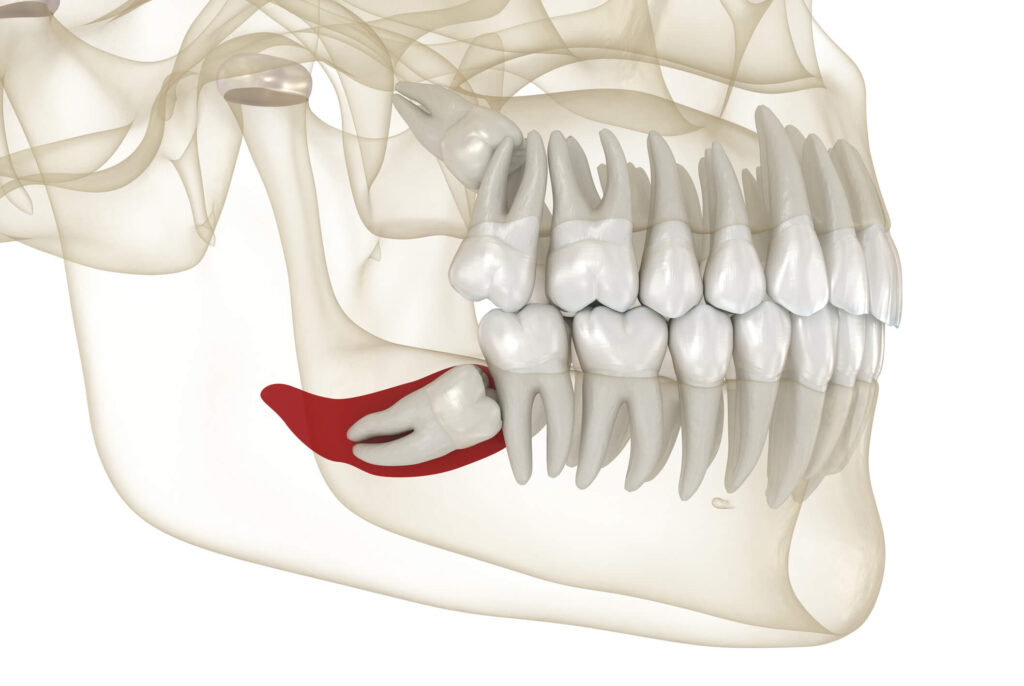1. Impacted Wisdom Teeth
One of the most common reasons for wisdom tooth extraction is impaction. When a wisdom tooth is impacted, it is trapped beneath the gum line or blocked from fully erupting by other teeth. Impacted wisdom teeth can cause significant discomfort, swelling, & even infection. In severe cases; they can develop cysts or damage to the adjacent teeth & bone.
2. Crowding and Misalignment
The emergence of wisdom teeth can cause overcrowding in your mouth. Most people do not have enough space for these additional molars; which can lead to the misalignment of your existing teeth. This crowding can undo years of orthodontic work or push your other teeth out of their correct positions, leading to bite problems and difficulties with oral hygiene.
3. Pain and Discomfort
Pain is a primary indicator that you may need a wisdom tooth removal. The pressure from emerging wisdom teeth can cause pain in your jaw; swelling in your gums, & general discomfort in your mouth. If you experience persistent pain in the back of your mouth; it’s essential to consult with a dentist or oral surgeon to determine, if wisdom tooth extraction is necessary.

4. Infection and Gum Disease
Partially erupted wisdom teeth can create pockets in your gums that are difficult to clean, making them breeding grounds for bacteria. This can lead to infections, gum disease, and the formation of painful abscesses. Chronic inflammation and infection around these teeth can also have negative impacts on your overall health, potentially leading to more severe systemic issues.
5. Tooth Decay
Due to their position at the back of the mouth; wisdom teeth are harder to reach and clean properly. This makes them more susceptible to cavities and decay. Even with diligent oral hygiene; the location and alignment of wisdom teeth can make it challenging to maintain their cleanliness. If a wisdom tooth becomes significantly decayed, extraction may be the best option to prevent further oral health complications.
6. Cysts and Tumours
Although rare; cysts and tumours can develop around impacted wisdom teeth. These growths can damage the jawbone & surrounding teeth if left untreated. Regular dental check-ups & X-rays can help monitor the development of your wisdom teeth and detect any abnormalities early on; allowing for timely wisdom tooth extraction if necessary.
7. Preventive Measures
In some cases; dentists recommend wisdom tooth removal as a preventive measure; even if you aren’t currently experiencing problems. Removing wisdom teeth before they cause issues can prevent future complications & promote long-term oral health. Younger patients generally recover more quickly from the procedure; making early extraction a viable option for preventing potential problems.
Wisdom tooth removal is a common procedure that can alleviate pain, prevent complications; & promote better oral health. If you experience symptoms like pain, swelling, or difficulty cleaning your teeth; it’s important to consult with your dentist. They can assess your situation & determine whether wisdom tooth extraction is the best course of action for you. By addressing issues with your wisdom teeth early, you can maintain a healthy and comfortable smile for years to come.